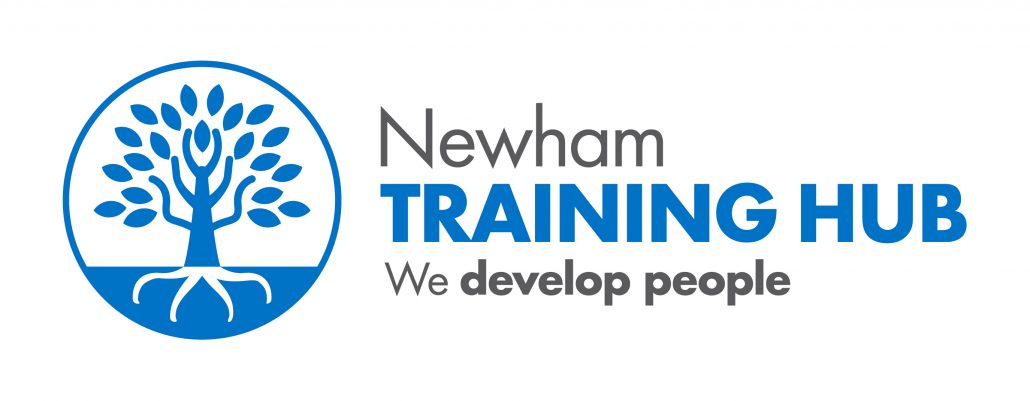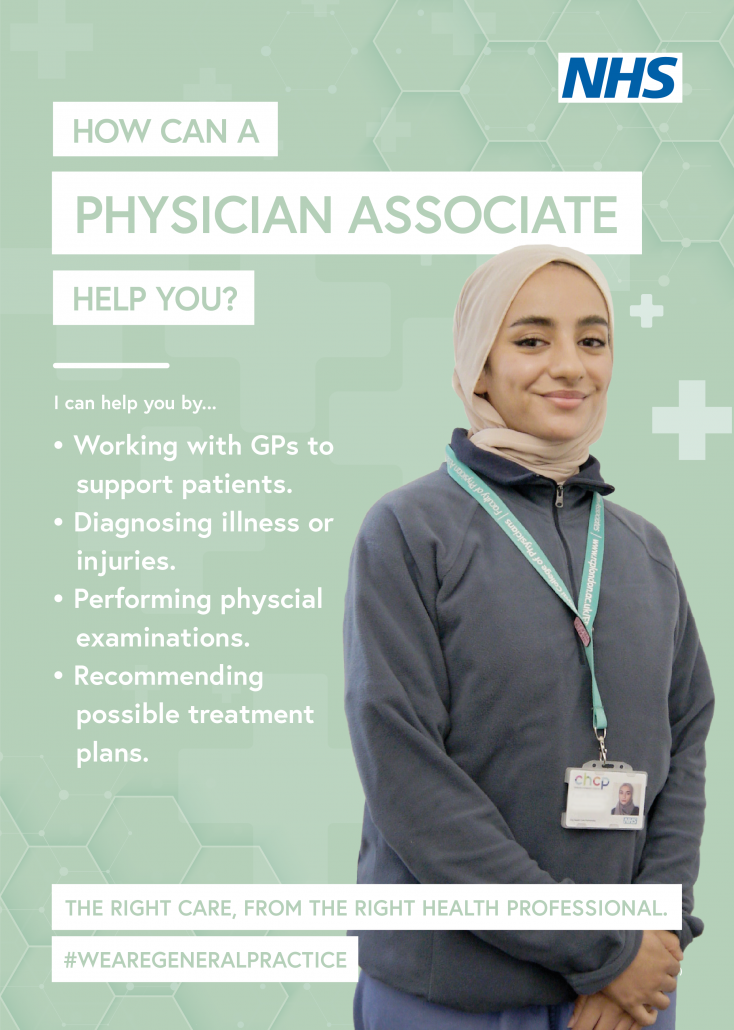Physician Associates (PAs) are healthcare professionals with a generalist medical education who work alongside doctors providing medical care as an integral part of the multidisciplinary team. Physician Associates are dependent practitioners who work under the supervision of a fully trained and experienced doctor. They bring new talent and add to the skill mix within teams, providing a stable, generalist section of the workforce which can help ease the workforce pressures that the NHS currently faces.
Physician Associates (PAs) provide care for presenting patients, from initial history taking and clinical assessment, through to the diagnosis, treatment and evaluation of care. The PA will demonstrate critical thinking in the clinical decision-making process, including assessment and diagnostic skills, leading to the delivery of safe care for all patients. They will work collaboratively with a practice team to meet the needs of the patients, supporting the delivery of policy and procedures. The role will provide a holistic, clinical service, with support from GPs as required, implementing agreed plans and following approved protocols, adding value to the PCN workforce.
Click HERE for the HEE Employers guide to Physician Associates (PAs) in Primary Care, Pan London
Meet our physician associate – working alongside GPs to meet patients’ healthcare needs.
Click HERE for the Job Description Template
| Key roles and responsibilities | Education and training requirements |
Recommended minimum supervision |
|
Completed a postgraduate physician associate course*
Professional registration with the Faculty of Physician Associates and/or the General Medical Council Passed the UK Physician Associate National Re-Certification exam * Physician associates undertaking approved training can be employed as apprentices if under the supervision of a registered medical practitioner |
Should have access to a named GP supervisor
Monthly supervision can be provided |
Training/Development
Physician Associate students already have an undergraduate degree in a life science and/ or a significant background in healthcare. To become a Physician Associate, students take a 2-year, full-time, intensive postgraduate course at Diploma or Masters level in Physician Associate studies. A list of courses can be found here: https://www.fparcp.co.uk/becoming-a-pa.
It includes over 1,400 hours of clinical placement experience in both acute and community settings. A new route via a 4-year Undergraduate Masters programme will run subject to approval. Once qualified, physician associates must maintain 50 hours of CPD per year and sit a recertification examination every 6 years.
PAs in GP Team
PAs are a relatively new member of the clinical team, seen as complementary to GPs rather than a substitute. Following the announcement of the General Medical Council (GMC) to regulate PAs, the ministerial statement outlines the next part of the consultation process to regulate the role under statute. The UK and devolved governments are now working together alongside stakeholders to develop and then consult on draft legislation. We have been informed by the Department for Health and Social Care (DHSC) that the regulation of physician associates (PAs) by the General Medical Council (GMC) will begin no earlier than the summer of 2023. Once this is in place, separate and additional legislation is required for PA prescribing rights.
See https://www.fparcp.co.uk/employers/pas-in-general-practice for more detailed information. The document also outlines the requirements of a range of assessments to be completed by physician associates working in primary care during their first year in order to support the evidence they need for their revalidation.
Benefits to patients
- Patients can currently spend two to three times longer consulting with PAs compared to GPs, eg 20–30 minutes
- As an additional member of the workforce, PAs should increase access to care
- Patients may be given a longer appointment with a PA to help address unmet medical needs
Benefits to PCN’s
- Frees up GP time and reduces GP stress by consulting with patients with routine care needs
- Ensures a level of continuity and added value
- PAs can take part in audits and quality improvement
- Practice workload is supported by an extra generalist resource – Easier access often results in better patient satisfaction
- Reduce GP workload as are able to make referrals and review test results
- There is the flexibility for a practice to build up the interests and skills of a PA to suits the practice needs
RESOURCES
It has been identified by HEE PAA there is a need for specific paediatric educational opportunities within the community, and an urgent and emergency care workforce. The aim is to increase the confidence of the workforce in treating children and young people. This resulted in the development of the London Paediatrics in Urgent and Emergency care Learning resource, a collection of guidelines and varied learning resources covering common clinical and non-clinical presentations for children and young people.
Please find the links below
HEE Learning Hub – https://learninghub.nhs.uk/Resource/6607/Item
Future NHS Workspace: London Paediatrics in Urgent and Emergency Care Learning Resource – https://future.nhs.uk/connect.ti/LondonPaediatricsUECLearning/grouphome
These resources do require signing up for the site, but they are free of charge.

